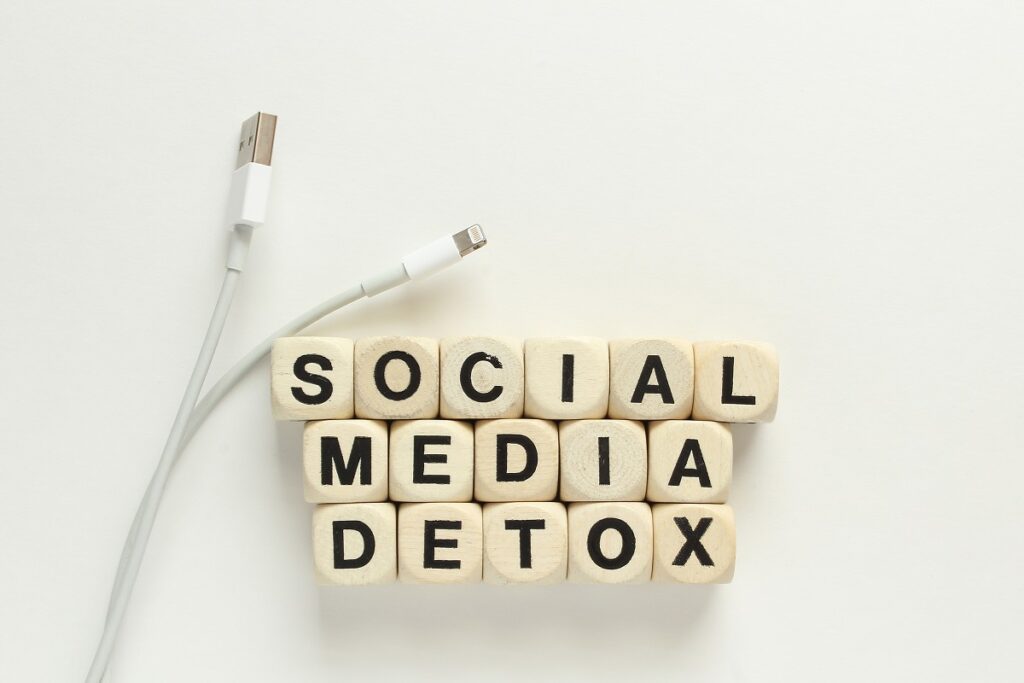Have you ever aimlessly scrolled through your social media accounts, feeling detached and overwhelmed by the infinite content? It’s easy to become lost in social media’s daily information overload, but it doesn’t have to be.
It’s crucial to practice mindfulness in today’s fast-paced environment. If used intentionally, social media may foster awareness and connection.
As a longtime social media user, I know how easy it is to become lost in the unending scroll. I’m pleased to share with you today some basic behaviors we may adopt to remain present and attentive when using social media.
I’ll share four strong social media habits in this piece to help you remain focused and present. Reduce social media usage, take pauses, practice appreciation, and join social media groups.
In addition, I’ll also show research-backed ways to help you develop these behaviors. These practices can help you remain grounded and aware on social media, regardless of your experience.
Grab a coffee and settle in—begin! let’s This essay will provide you effective habits to be attentive and present on social media.

Why Should You Reduce The Time Spent on Social Media?
Limiting social media usage may improve your everyday mindfulness. Spending less time on social media allows you to focus on the present, connect with others, and develop mindfulness.
Social media users spend time scrolling. This can cause disconnection, lack of focus, and overwhelm. A 2019 Pew Research Center study found that nearly 70% of Americans over 50 use social media and spend significant time on it. Yet, excessive social media usage may raise anxiety, despair, and loneliness.
Reduce your social media usage to reclaim your time and pursue other fulfilling pursuits. Examples are spending time with family, pursuing hobbies, or relaxing and recharging.
Limiting social media usage also helps you focus on the present. You may improve your senses and presence by laying down your phone and concentrating on the environment around you.
Reducing social media usage improves mental health and well-being. Being more present and attentive may enhance your relationships, productivity, and a sense of purpose.
Take Breaks Often
Social media breaks may help you practice mindfulness and presence. By purposefully disconnecting from information and stimulation, you may lessen overload and distraction and connect more profoundly with yourself and the environment.
A 2021 American Psychological Association research connected excessive social media usage to anxiety, despair, and loneliness. Yet, taking vacations from social media improves mental health and mindfulness.
Social media breaks benefit People over 50. Focusing on joyful hobbies and relationships might become more essential as we age. Taking vacations from social media allows you to spend time with loved ones, pursue hobbies, or just relax and recharge.
Use your social media breaks wisely. Instead of aimlessly scanning your phone, consider focused activities like walking in nature, doing yoga or meditation, or creating art or writing.
Taking social media breaks might help you be more attentive and present. By purposefully disconnecting from information and stimulation, you may lessen overload and distraction and connect more profoundly with yourself and the environment.
Finally, if you’re over 50 and overwhelmed by social media, take pauses to boost your mental health. Mindfulness and present practices may boost your everyday purpose and satisfaction.
Join a Social Media Group
Can you believe that social media groups can actually help you meditate better? Yes, that’s right! Although you shouldn’t use social media that much in general, becoming part of a community can definitely help you out.
This information is actually backed by science! For example, a 2018 Journal of Aging and Health study found that social support predicts older adults’ well-being. Joining social media groups might help seniors to get social support and connect with others who share their interests and concerns. Cool, right?
Join social media communities that share your beliefs and interests. You may join groups for meditation techniques, yoga, mindfulness, or even about adopting a minimalist lifestyle. You may improve your well-being and strengthen your relationships by interacting with individuals who share your interests and beliefs.
In 2023, it’s crucial to participate in social media groups. Asking questions, sharing your own experiences, and supporting others in the group may be part of this. By joining social media groups, you may improve your mindfulness and relationships.

Organize Your Social Media Feed
Arranging social media feeds may help you practice mindfulness and presence. You may be more focused and thoughtful online by customizing your social media experience and minimizing bad or distracting stuff.
A 2018 Journal of Social and Clinical Psychology research connected excessive social media usage to anxiety, despair, and loneliness. Organizing your social media feeds reduces bad information and creates a more friendly and helpful online atmosphere.
Unfollow accounts that don’t share your beliefs and interests, and curate your feed to include information that inspires and uplifts you. You may also restrict your social media use by establishing time limits or scheduling “offline” time.
Be deliberate while structuring your social media feeds. This may mean abandoning social media and concentrating on present-moment activities and relationships.
Organizing your social media feeds and being more aware online may minimize anxiety and overload and improve your well-being and happiness.
In other words, managing your social media feeds might help you be more conscious and present if you’re over 50. You may improve your well-being and happiness by managing your social media experience and avoiding bad or distracting information.
Show Gratitude
Engaging with others and expressing gratitude, empathy, and kindness can improve your online experience and overall well-being. There’s plenty of research already proving this matter as you’ll soon find out!
A 2017 Journal of Social Psychology study found that kindness and gratitude improve well-being and happiness. Positively responding to social media posts can help you be more mindful and empathetic online.
Take a minute to meditate on the post’s substance and provide sincere thanks or support to respond mindfully and positively. This could involve commenting on the post, sharing your own perspective, or sending a private message of gratitude or admiration.
Be mindful when responding to social media posts. Before answering, take a few deep breaths and really connect with the message.
By being thoughtful and pleasant on social media, you may build a more supportive and gratifying online community that boosts your well-being and happiness. Amazing, right?
Also interested in How to Be More Mindful at Your Workplace?









